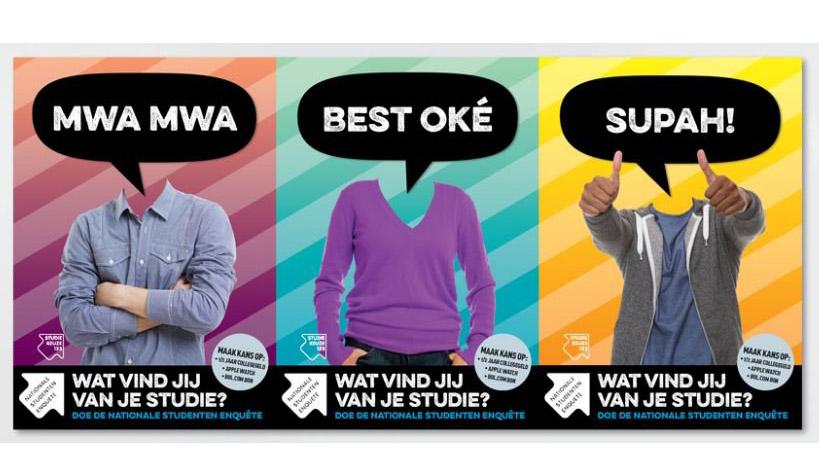UU will participate in the National Student Survey in 2019 anyway

The past few weeks, there has been a lot of discussion behind the scenes. Utrecht University and, in its wake, the University of Amsterdam had said they wished to withdraw from the National Student Survey. The consequences would be enormous. The UU and UvA would then no longer be included in the annual overviews such as Elsevier's educational guide and the Higher Education Guide, as these overviews are based on the large-scale student research.
General questions
The reason the UU threatened to stop with the NSE was that the University had been dissatisfied with the questionnaire for years. The questions would be far too general, which would allow students to interpret them differently. As a result, the University did not have much use for the answers.
However, enough was enough for the UU when the NSE announced last spring that students were given the choice to fill in the questions anonymously. As a result, information given by these students is only passed on to the institutions to a limited extent. The answers of all these anonymous students are no longer divided into characteristics such as faculty, type of study program and academic year. According to the NSE, this measure was a logical consequence of the new AVG privacy law.
For Utrecht University, this meant that they received far less information. As a result, institutions could do less with the feedback to improve its programmes, especially because the anonymous participants generally belong to the most critical group.
A lot of protest
There was a lot of protest against the UU threat. For example, the chairmen of the student unions found that the UU would make it more difficult for prospective students. According to them, that is the main purpose of the NSE. The editor-in-chief of the Keuzegids was not happy with the threat either, although he said he did see opportunities to resolve the objections. The student members of the University Council did support the decision of the Executive Board to stop with the NSE. They found the quality of the questions below par, causing for a good comparison of study programmes would not be possible.
At first, Studiekeuze123 did not intend to give in to the requirements of UU. The NSE is not intended for quality research if it is at the expense of study choice information and the foundation was bound by privacy legislation, according to Pauline Thoolen, head of information management at Studiekeuze123.
Promises
Now, Studiekeuze123 has given in and made some promises, says the UU in an internal memo. Because of this, the UU will be given the opportunity to see for each NSE participant which (master) program she / he is following, at which faculty and within which graduate school. The condition is that groups of at least five students are involved, because otherwise the student would be recognizable. In addition, the UU will formulate the questions it adds in such a way that identification of the student is excluded. As a result, Studiekeuze123 no longer needs to sort through the answers in order to comply with the privacy law. The UU is also allowed to add some lines of text to the invitation itself to explain that anonymous participation has consequences for the possibility of improving the study.
Furthermore, it has been agreed that further discussions will be held for a fundamental adjustment of the NSE questionnaire after 2020. That process will be led by the Ministry of Education, Culture and Science. With this, the University hopes for a better questionnaire. Around April 2019, there should be more clarity about this and the University will decide whether it will still cooperate with the NSE after 2020.
In the future
In a letter to the House of Representatives, Minister Ingrid van Engelshoven writes that her ministry will take the lead in looking at how the NSE should be designed in the future. In doing so, it wants to meet universities and universities of applied sciences on the one hand so that they can use the outcomes of the survey to improve the quality of the programs. On the other hand, students must also agree with this design and the survey may not be in violation of the privacy legislation. Discussions about this already begin in January. In April there must be an agreement in principle already.